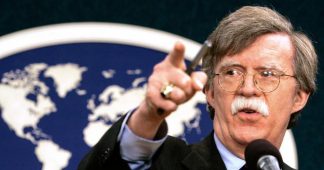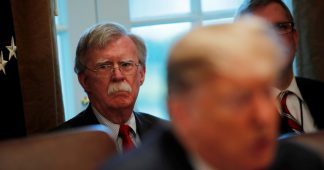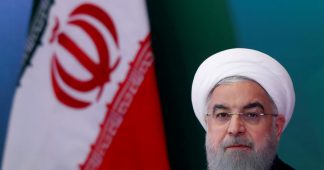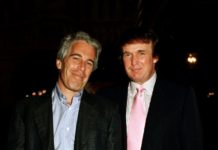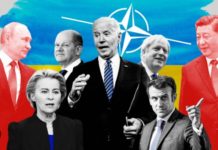Hawks in Israel and America have spent more than a decade agitating for war against the Islamic Republic’s nuclear program. Will Trump finally deliver?
Ronen Bergman and
In July of 2017, the White House was at a crossroads on the question of Iran. President Trump had made a campaign pledge to leave the “terrible” nuclear deal that President Barack Obama negotiated with Tehran, but prominent members of Trump’s cabinet spent the early months of the administration pushing the mercurial president to negotiate a stronger agreement rather than scotch the deal entirely. Thus far, the forces for negotiation had prevailed.
But counterforces were also at work. Stephen K. Bannon, then still an influential adviser to the president, turned to John Bolton to draw up a new Iran strategy that would, as its first act, abrogate the Iran deal. Bolton, a Fox News commentator and former ambassador to the United Nations, had no official role in the administration as of yet, but Bannon saw him as an outside voice that could stiffen Trump’s spine — a kind of back channel to the president who could convince Trump that his Iran policy was adrift.
As a top national security official in the George W. Bush administration, Bolton was one of the architects of regime change in Iraq. He had long called not just for withdrawing from the Joint Comprehensive Plan of Action, or J.C.P.O.A., as the 2015 nuclear deal was known, but also for overthrowing the Iranian regime that negotiated it. Earlier that July, he distilled his views on the matter in Paris, at an annual gathering in support of the fringe exile movement Mujahedeen Khalq, or the M.E.K., which itself had long called for regime change in Iran. Referring to the continuing policy review in Washington, he repeated his belief that the only sufficient American policy in Iran would be to change the Iranian government and whipped the crowd into a standing ovation by pledging that in two years, Iran’s leaders would be gone and that “we here will celebrate in Tehran.”
The document that Bolton produced at Bannon’s request was not a strategy so much as a marketing plan for the administration to justify leaving the Iran deal. It did little to address what would happen on Day 2, after the United States pulled out of the deal. But Bolton’s views were hardly a secret to those who had spoken to him over the years or read the Op-Ed he wrote in The New York Times in 2015: Once American diplomacy had been set aside, Israel should bomb Iran.
Read more at www.nytimes.com

